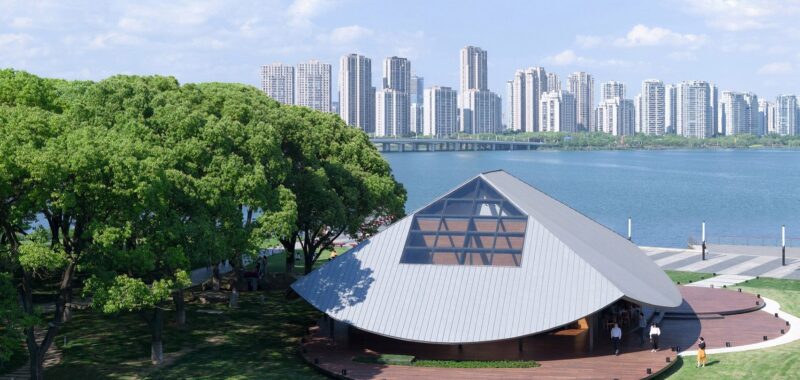Chinese studio Galaxy Arch has completed a pavilion in Suzhou Industrial Park that is modelled on an old wooden cabin and sheltered by a curved roof with large overhangs.
Located alongside a grove of camphor trees, the pavilion is one of 11 on the banks of Jinji Lake, each designed to provide visitor services for people within a 15-minute radius.
Named Wooden Cabin Pavilion No 1, Galaxy Arch’s design references an old and dilapidated wooden cabin on the site that had once been a popular spot for locals.
“Although the old wooden cabin was dilapidated, it was a beloved local hangout, so the reconstruction aimed to carefully continue its story, blending nostalgic warmth with a fresh appearance,” explained the studio.
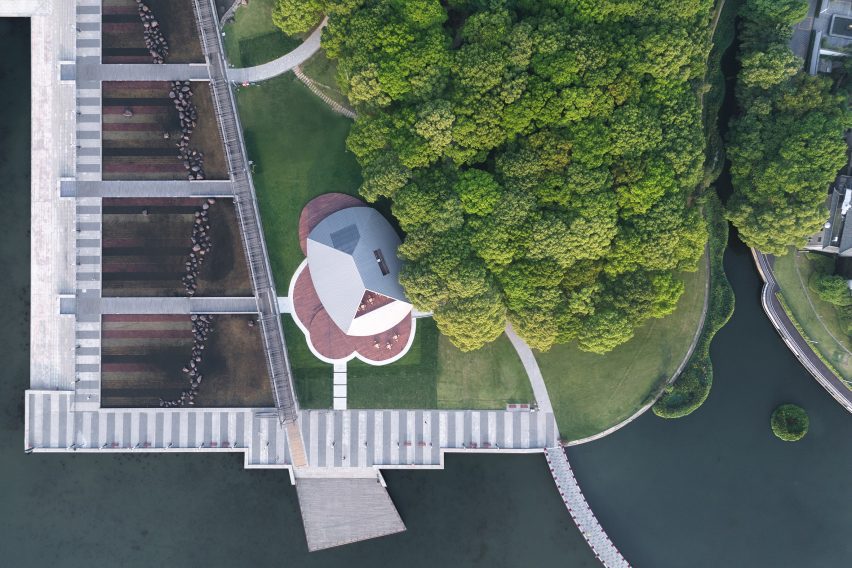
Wooden Cabin Pavilion No 1 has a hybrid steel and wood structure that stands on a tiered wooden terrace of overlapping circular decks. This provides outdoor seating and connects to the existing lakeside promenade via a short path.
A large metal roof tops the pavilion, featuring edges that curve upwards in each corner to create a distinctive profile that signals each of the four entrances into the pavilion.
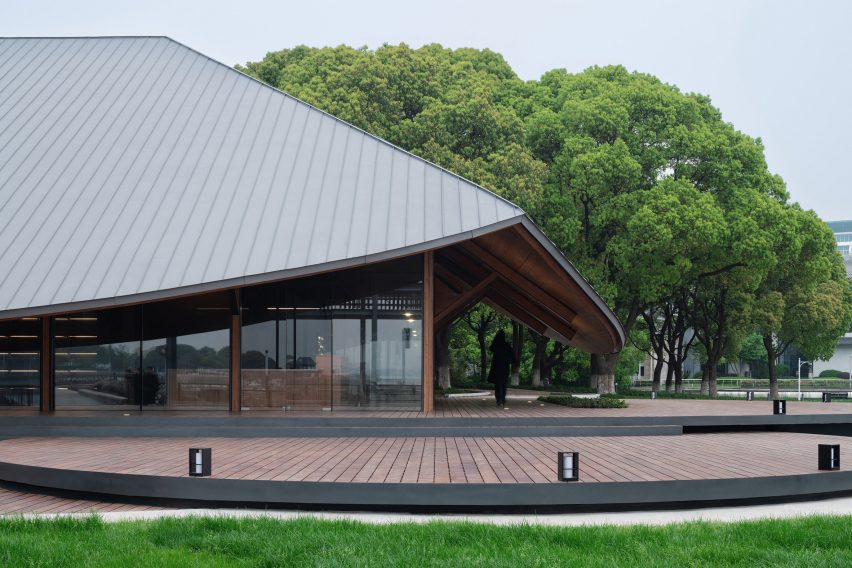
“When walking under the eaves, one can see the grove or lake at the end, but the low eaves beside them block the immediate view,” Galaxy Arch founder Ge Jiaqi told Dezeen.
“This strong visual guidance compels people to sit down at the eaves to explore further,” she added. “This almost instinctive action makes the space under the eaves inviting and worth lingering in.”
On the ground floor, a glass-walled cafe and information area wraps a core of visitor facilities, including toilets, storage and baby changing.
The large expanses of glazing provide views out to both the lake and the nearby trees and, at night, allow light to filter out underneath the eaves “adding a touch of mystery”, Jiaqi said.
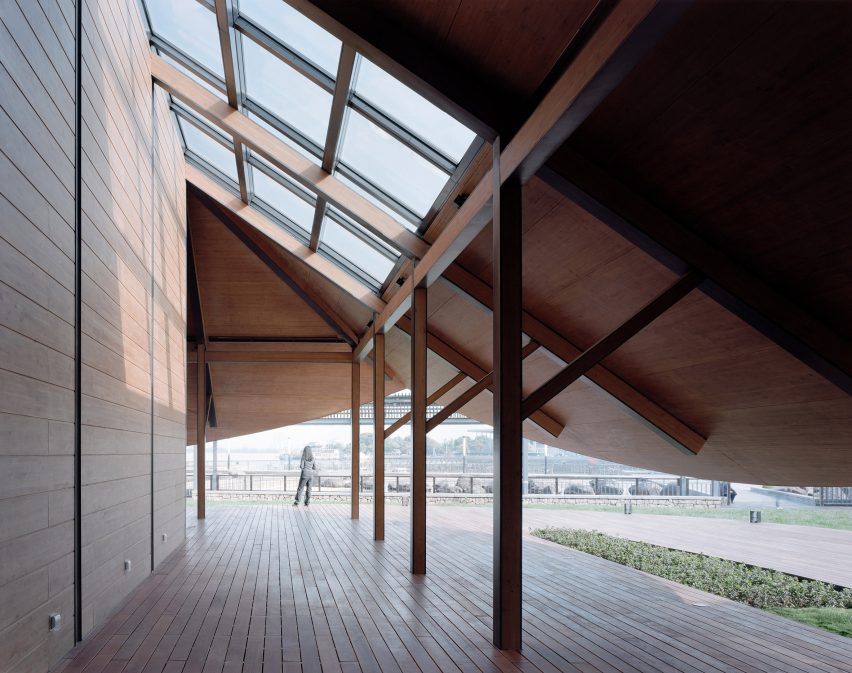
A staircase illuminated by a large skylight leads to additional seating for the cafe on the first floor, which opens onto a terrace nestled in a cut-out section of the roof.
“It neither stands out with glaring lights that detach it from the natural environment nor is it so understated as to be silent and unnoticeable,” Jiaqi told Dezeen. “Instead, it engages in a gentle dialogue with its surroundings, creating a sense of resonance,” she added.
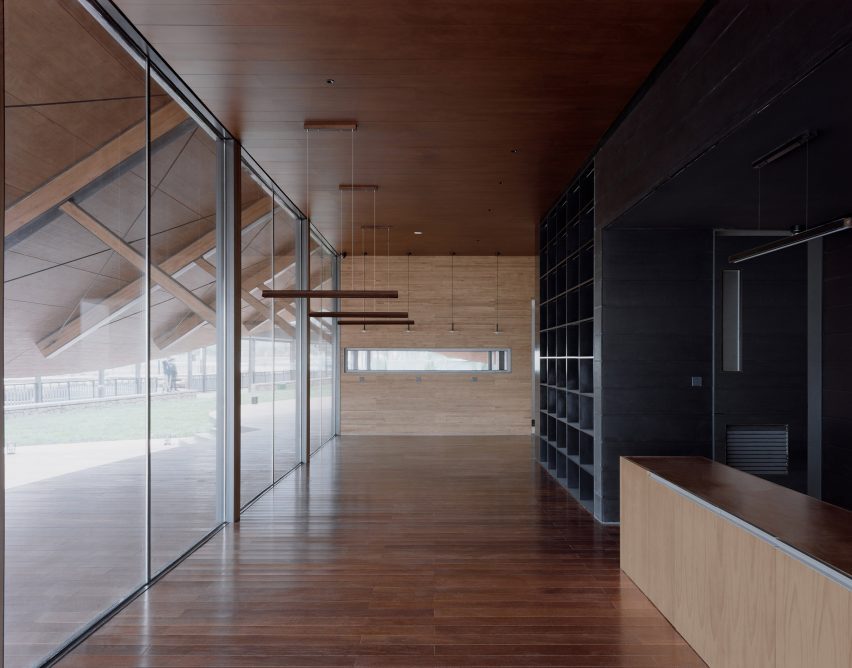
Based in Shanghai, Galaxy Arch was founded by Jiaqi and Ji Xin. Previous projects by the studio include the Dapi Mountain Restaurant in Henan Province, which is topped by a sweeping roof informed by bird wings.
Other recently completed pavilions in China include Twisted Brick Shell Library, which is designed “to cuddle visitors”, and an angular concrete structure intended as a “lighthouse” for farmers.
The photography is by Chen Hao unless otherwise stated.

